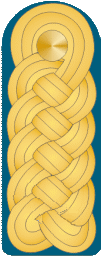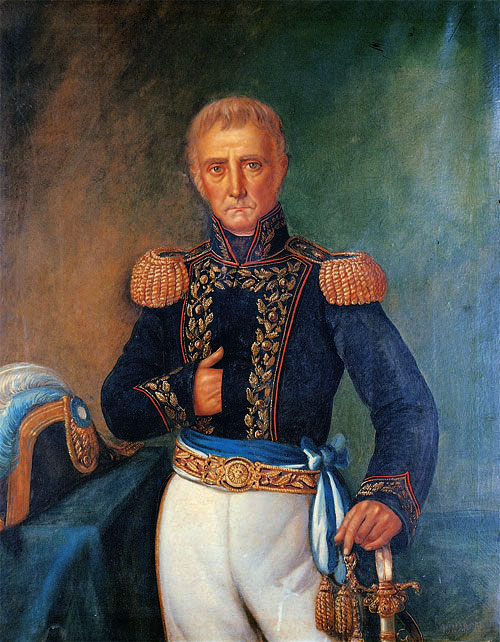|
Alfredo Oscar Saint Jean
Alfredo Oscar Saint-Jean (; 11 November 1926 – 2 September 1987) was an Argentine Army division general and politician, who served as President of Argentina in 1982. Earlier public role Following the 1976 coup and the intervention of the Argentine military in public affairs during the National Reorganization Process, Alfredo Saint-Jean was one of the generals who held senior roles. He served as interior minister from 1981, having been appointed by General Leopoldo Galtieri. President of Argentina He briefly served as President of Argentina from 18 June 1982 to 1 July 1982, during a period of military rule, after Galtieri was ousted from office owing to the country's defeat in the Falklands War. Succession Saint-Jean's brief period as president in June and July 1982 ended when he was succeeded by General Reynaldo Bignone. See also * National Reorganization Process The National Reorganization Process (Spanish: ''Proceso de Reorganización Nacional'', often simply '' ... [...More Info...] [...Related Items...] OR: [Wikipedia] [Google] [Baidu] |
Argentina
Argentina (), officially the Argentine Republic ( es, link=no, República Argentina), is a country in the southern half of South America. Argentina covers an area of , making it the second-largest country in South America after Brazil, the fourth-largest country in the Americas, and the eighth-largest country in the world. It shares the bulk of the Southern Cone with Chile to the west, and is also bordered by Bolivia and Paraguay to the north, Brazil to the northeast, Uruguay and the South Atlantic Ocean to the east, and the Drake Passage to the south. Argentina is a federal state subdivided into twenty-three provinces, and one autonomous city, which is the federal capital and largest city of the nation, Buenos Aires. The provinces and the capital have their own constitutions, but exist under a federal system. Argentina claims sovereignty over the Falkland Islands, South Georgia and the South Sandwich Islands, and a part of Antarctica. The earliest recorded human prese ... [...More Info...] [...Related Items...] OR: [Wikipedia] [Google] [Baidu] |
Division General
Divisional general is a general officer rank who commands an army division. The rank originates from the French (Revolutionary) System, and is used by a number of countries. The rank is above a brigade general, and normally below an army corps general. The rank is mostly used in countries where it is used as a modern alternative to a previous older rank of major-general or lieutenant-general. Specific countries Brazil The Brazilian rank ''general-de-divisão'' translates literally as "general of division", and is used by the army. This rank is equivalent to lieutenant-general. The air force equivalent is ''major-brigadeiro''(literally "major-brigadier"). The navy equivalent is ''vice-almirante'' (literally, vice-admiral) Chile The Chilean rank ''general de división'' translates literally as "general of division", and is used by the army. This rank is equivalent to lieutenant-general. The air force equivalent is ''general de aviación'' (literally "aviation general"). Thes ... [...More Info...] [...Related Items...] OR: [Wikipedia] [Google] [Baidu] |
Presidents Of Argentina
Argentina has had many different types of heads of state, as well as many different types of government. During pre-Columbian times, most of the territories that today form Argentina were inhabited by Indigenous peoples in Argentina, Amerindian peoples without any centralized government, with the exception of the Inca Empire, Inca subjects of the Argentine Northwest, Northwest and Cuyo (Argentina), Cuyo regions. During the Spanish colonization of the Americas, the Monarchy of Spain, King of Spain retained the ultimate authority over the territories conquered in the New World, appointing viceroys for local government. The territories that would later become Argentina were first part of the Viceroyalty of Peru and then the Viceroyalty of the Río de la Plata. The May Revolution started the Argentine War of Independence by replacing the viceroy Baltasar Hidalgo de Cisneros with the first national government. It was the Primera Junta, a Junta (Peninsular War), junta of several members ... [...More Info...] [...Related Items...] OR: [Wikipedia] [Google] [Baidu] |
People From Chascomús
A person (plural, : people) is a being that has certain capacities or attributes such as reason, morality, consciousness or self-consciousness, and being a part of a culturally established form of social relations such as kinship, ownership of property, or legal obligation, legal responsibility. The defining features of personhood and, consequently, what makes a person count as a person, differ widely among cultures and contexts. In addition to the question of personhood, of what makes a being count as a person to begin with, there are further questions about personal identity and self: both about what makes any particular person that particular person instead of another, and about what makes a person at one time the same person as they were or will be at another time despite any intervening changes. The plural form "people" is often used to refer to an entire nation or ethnic group (as in "a people"), and this was the original meaning of the word; it subsequently acquired its us ... [...More Info...] [...Related Items...] OR: [Wikipedia] [Google] [Baidu] |
1987 Deaths
File:1987 Events Collage.png, From top left, clockwise: The MS Herald of Free Enterprise capsizes after leaving the Port of Zeebrugge in Belgium, killing 193; Northwest Airlines Flight 255 crashes after takeoff from Detroit Metropolitan Airport, killing everyone except a little girl; The King's Cross fire kills 31 people after a fire under an escalator Flashover, flashes-over; The MV Doña Paz sinks after colliding with an oil tanker, drowning almost 4,400 passengers and crew; Typhoon Nina (1987), Typhoon Nina strikes the Philippines; LOT Polish Airlines Flight 5055 crashes outside of Warsaw, taking the lives of all aboard; The USS Stark is USS Stark incident, struck by Iraq, Iraqi Exocet missiles in the Persian Gulf; President of the United States, U.S. President Ronald Reagan gives a famous Tear down this wall!, speech, demanding that Soviet Union, Soviet leader Mikhail Gorbachev tears down the Berlin Wall., 300x300px, thumb rect 0 0 200 200 Zeebrugge disaster rect 200 0 400 200 ... [...More Info...] [...Related Items...] OR: [Wikipedia] [Google] [Baidu] |
1926 Births
Events January * January 3 – Theodoros Pangalos (general), Theodoros Pangalos declares himself dictator in Greece. * January 8 **Abdul-Aziz ibn Saud is crowned King of Kingdom of Hejaz, Hejaz. ** Bảo Đại, Crown Prince Nguyễn Phúc Vĩnh Thuy ascends the throne, the last monarch of Vietnam. * January 12 – Freeman Gosden and Charles Correll premiere their radio program ''Sam 'n' Henry'', in which the two white performers portray two black characters from Harlem looking to strike it rich in the big city (it is a precursor to Gosden and Correll's more popular later program, ''Amos 'n' Andy''). * January 16 – A BBC comic radio play broadcast by Ronald Knox, about a workers' revolution, causes a panic in London. * January 21 – The Belgian Parliament accepts the Locarno Treaties. * January 26 – Scottish inventor John Logie Baird demonstrates a mechanical television system at his London laboratory for members of the Royal Institution and a report ... [...More Info...] [...Related Items...] OR: [Wikipedia] [Google] [Baidu] |
Falklands War
The Falklands War ( es, link=no, Guerra de las Malvinas) was a ten-week undeclared war between Argentina and the United Kingdom in 1982 over two British dependent territories in the South Atlantic: the Falkland Islands and its territorial dependency, South Georgia and the South Sandwich Islands. The conflict began on 2 April, when Argentina invaded and occupied the Falkland Islands, followed by the invasion of South Georgia the next day. On 5 April, the British government dispatched a naval task force to engage the Argentine Navy and Air Force before making an amphibious assault on the islands. The conflict lasted 74 days and ended with an Argentine surrender on 14 June, returning the islands to British control. In total, 649 Argentine military personnel, 255 British military personnel, and three Falkland Islanders were killed during the hostilities. The conflict was a major episode in the protracted dispute over the territories' sovereignt ... [...More Info...] [...Related Items...] OR: [Wikipedia] [Google] [Baidu] |
Military Dictatorship
A military dictatorship is a dictatorship in which the military exerts complete or substantial control over political authority, and the dictator is often a high-ranked military officer. The reverse situation is to have civilian control of the military. Creation and evolution Most military dictatorships are formed after a ''coup d'état'' has overthrown the previous government. There have been cases, however, where the civilian government had been formally maintained but the military exercises ''de facto'' control—the civilian government is either bypassed or forced to comply with the military's wishes. For example, from 1916 until the end of World War I, the German Empire was governed as an effective military dictatorship, because its leading generals had gained such a level of control over Kaiser Wilhelm II that the Chancellor and other civilian ministers effectively served at their pleasure. Alternatively, the Empire of Japan after 1931 never in any formal way drastically ... [...More Info...] [...Related Items...] OR: [Wikipedia] [Google] [Baidu] |
Argentine
Argentines (mistakenly translated Argentineans in the past; in Spanish (masculine) or (feminine)) are people identified with the country of Argentina. This connection may be residential, legal, historical or cultural. For most Argentines, several (or all) of these connections exist and are collectively the source of their being ''Argentine''. Argentina is a multiethnic and multilingual society, home to people of various ethnic, religious, and national origins, with the majority of the population made up of Old World immigrants and their descendants. As a result, Argentines do not equate their nationality with ethnicity, but with citizenship and allegiance to Argentina. Aside from the indigenous population, nearly all Argentines or their ancestors immigrated within the past five centuries. Among countries in the world that have received the most immigrants in modern history, Argentina, with 6.6 million, ranks second to the United States (27 million), and ahead of other immigr ... [...More Info...] [...Related Items...] OR: [Wikipedia] [Google] [Baidu] |
Division General
Divisional general is a general officer rank who commands an army division. The rank originates from the French (Revolutionary) System, and is used by a number of countries. The rank is above a brigade general, and normally below an army corps general. The rank is mostly used in countries where it is used as a modern alternative to a previous older rank of major-general or lieutenant-general. Specific countries Brazil The Brazilian rank ''general-de-divisão'' translates literally as "general of division", and is used by the army. This rank is equivalent to lieutenant-general. The air force equivalent is ''major-brigadeiro''(literally "major-brigadier"). The navy equivalent is ''vice-almirante'' (literally, vice-admiral) Chile The Chilean rank ''general de división'' translates literally as "general of division", and is used by the army. This rank is equivalent to lieutenant-general. The air force equivalent is ''general de aviación'' (literally "aviation general"). Thes ... [...More Info...] [...Related Items...] OR: [Wikipedia] [Google] [Baidu] |
Dirty War
The Dirty War ( es, Guerra sucia) is the name used by the military junta or civic-military dictatorship of Argentina ( es, dictadura cívico-militar de Argentina, links=no) for the period of state terrorism in Argentina from 1974 to 1983 as a part of Operation Condor, during which military and security forces and right-wing death squads in the form of the Argentine Anticommunist Alliance (AAA, or Triple A) hunted down any political dissidents and anyone believed to be associated with socialism, left-wing Peronism, or the Montoneros movement.''Political Violence and Trauma in Argentina, '' Antonius C. G. M. Robben, p. 145, University of Pennsylvania Press, 2007Marguerite Guzmán Bouvard, ''Revolutionizing Motherhood: The Mothers of the Plaza De Mayo,'' p. 22, Rowman & Littlefield, 1994 It is estimated that between 9,000 and 30,000 people were killed or disappeared, many of whom were impossible to formally document due to the nature of state terrorism. The primary target, ... [...More Info...] [...Related Items...] OR: [Wikipedia] [Google] [Baidu] |


_1938.jpg)



.jpg)